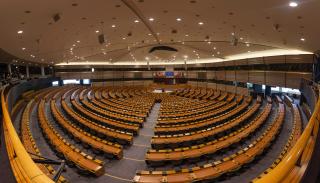
Breadcrumbs navigation
Women’s discursive agency in transitional justice policy-making: A feminist institutionalist approach
In this short summary video, authors Denisa Kostovicova and Vesna Popovski go through the key arguments from their new Review of International Studies (RIS) article - Women’s discursive agency in transitional justice policy-making: A feminist institutionalist approach.
Want to know more? You can read the full article at DOI: https://doi.org/10.1017/S0260210523000360
This particular article is open access, however BISA members receive access to all articles in RIS (and our other journal European Journal of International Security) as a benefit of membership. To gain access, log in to your BISA account and scroll down to the 'Membership benefits' section. If you're not yet a member join today.
Abstract
Scholars have studied how women’s domestic and transnational civil society activism addresses the gendered nature of transitional justice. In contrast, they have paid scant attention to women’s impact on transitional justice policy-making in institutions. We leverage the feminist institutionalist perspective that makes visible gendered norms, rules, and discourses in institutions. Homing in on women’s influence in parliaments where women are outnumbered by men and marginalised by adversarial discourse, we develop a conceptualisation of women’s discursive agency. Foregrounding discourse in women’s ability to drive change, women’s agency is enacted through their linguistic communication style and substantive normative positions that constitute micro- and macro-level structures of domination. Quantitative and qualitative discourse analysis is applied to a corpus of parliamentary questions about transitional justice in the Croatian parliament from 2004 to 2020. Our results show that women adopt the adversarial style of questioning, which they use to broaden the scope of entitlements and press for reparations for female and male victims. They overcome constraints posed by partisanship and ideology, while constraints of nationalism are less easily broken. The article advances feminist transitional justice by demonstrating how women’s language contributes to dismantling men’s policy domination in institutions, with implications for mixed-sex interactions in non-institutional domains.
Photo by Marius Oprea on Unsplash